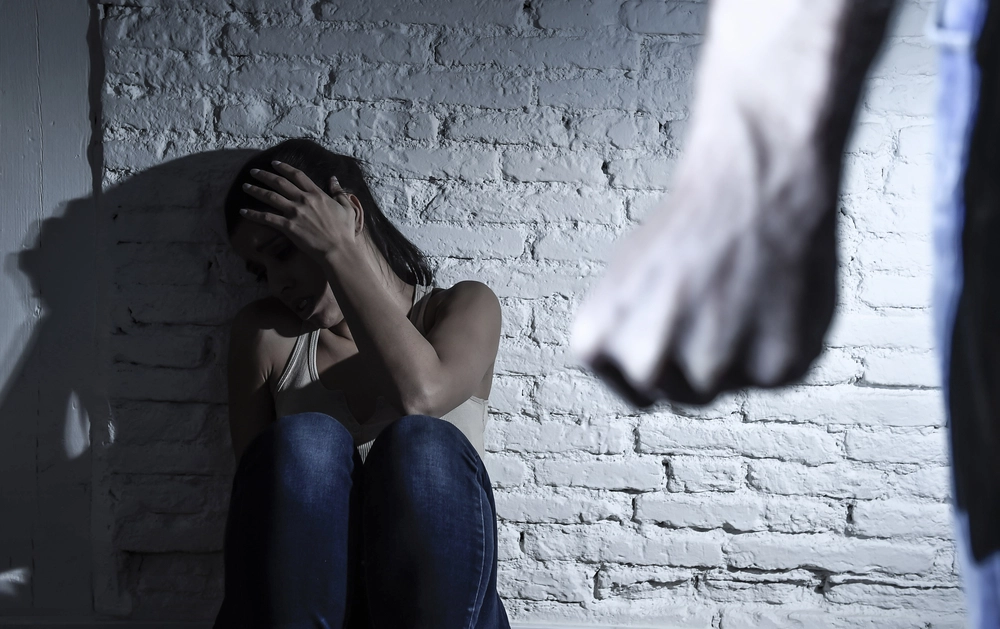
In the United States, millions of people are affected by domestic violence. This is also sometimes called intimate partner violence. This occurs when someone causes physical, psychological or sexual harm to a spouse or partner. There is a multilayered link between domestic violence and substance abuse which can create unique challenges to addiction treatment.
A 2014 study from the American Society of Addiction Medicine found that 40 to 60% of domestic violence incidents involved substance abuse. They also found that over one in five male abusers reported using substances before the most extreme acts of domestic violence. While there is no evidence to suggest that substance abuse causes domestic violence, there is a lot of evidence to suggest that substance abuse can exacerbate violent tendencies.
Drug and Alcohol Addiction in Abused Women
According to the United States Bureau of Justice Statistics, 85% of domestic violence victims are women. Women who suffer from substance use disorder are also more vulnerable to domestic violence than women who do not use substances. Also, women who experience domestic violence are more likely to have drug and/or alcohol addiction problems than women who aren’t in violent relationships.
Women who have been abused typically deal with other mental health disorders such as depression, anxiety and post-traumatic stress disorder. In many cases, these women start abusing substances to mask the emotional pain of the abuse or to self-medicate these mental health disorders.

It's time to get your life back.
If you are struggling with addiction and co-occurring mental health, our expert team is here to guide you every step of the way. Don’t wait— reach out today to take the first step toward taking control of your life.
Sexual Assault and Substance Abuse
Domestic violence often involves sexual abuse. There is a link between substance abuse and sexual abuse. In many cases, substances are used in instances of sexual abuse. Alcohol is the most typically used substance in these instances.
The link between substance use disorders and sexual abuse is complex. In many cases, it is a vicious cycle. Victims of sexual abuse are more likely to struggle with substance abuse, and those who struggle with substance abuse are more likely to experience sexual abuse.
Why Domestic Violence and Sexual Abuse Victims Don’t Seek Addiction Treatment
It is hard enough for the person who hasn’t been through domestic violence or sexual abuse to seek treatment for a substance use disorder. There is such a stigma associated with addiction in our country. Many people view addiction as a moral failing as opposed to a disease that needs to be treated. Victims of domestic violence and sexual abuse have an even harder time seeking treatment for drug and/or alcohol addiction. Some of the reasons they may avoid seeking treatment include:
- Feelings of Shame – Sexual abuse and domestic violence often bring about feelings of shame for victims. When this is added to the shame many people can’t overcome to seek drug or alcohol addiction treatment in the first place, it can become immobilizing.
- Fear of Not Being Believed – In many cases, victims of sexual abuse or domestic violence have convinced themselves that nothing happened. If they do want to speak out about the abuse, they often fear that others won’t believe them, particularly if substance abuse was involved. A lack of honesty about the situation can prevent patients from seeking the treatment they need for the abuse or the substance use disorder.
- Fear of Repercussions – In a number of cases, victims of domestic violence or sexual abuse don’t come forward because they are afraid the abuser will come after them.
It’s important that victims of domestic violence and sexual abuse are able to be completely honest about the incident(s). If they also struggle with substance use disorder, they cannot really be treated for the substance abuse if they aren’t also honest about how they have been victims of domestic violence or sexual abuse.
Should You Seek Treatment?
If you suffer from a drug and/or alcohol addiction and you are also a victim of domestic violence or sexual abuse, it’s important that you seek treatment as soon as possible. Continuing to self-medicate with drugs and alcohol will not lead to a good outcome. You may never heal from domestic violence or sexual abuse if you don’t also allow yourself to heal from substance abuse.
It’s important that you seek out a treatment center that treats co-occurring mental health disorders as well as domestic violence and sexual abuse leads to mental health disorders in many cases. The Recovery Village Ridgefield has addiction specialists that understand what you are going through. Convenient to the cities of Seattle, Washington and Portland, Oregon, The Recovery Village Ridgefield is an ideal choice for many patients. Reach out to us today, and discover your path to healing.

